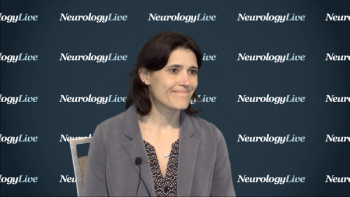
Despite high rates of depression in MS, picking up on signs that an individual may be at risk for suicide can be difficult. The staff neurologist at Cleveland Clinic’s Mellen Center discussed some of the red flags.

Despite high rates of depression in MS, picking up on signs that an individual may be at risk for suicide can be difficult. The staff neurologist at Cleveland Clinic’s Mellen Center discussed some of the red flags.

Results of a pooled analysis of 3 clinical trials suggest that the magnitude of fingolimod’s treatment effect in MS is not affected by the presence of migraine or headache in patients.
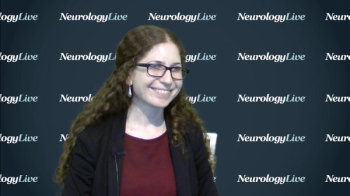
The MS neurologist at Cleveland Clinic’s Lou Ruvo Center for Brain Health spoke about the factors that should be taken into account when making treatment decisions in MS, such as tolerability, affordability, and the desire to start family planning.

Data from 5 clinical trials and their extensions along with 1 real-world study suggest that treatment with teriflunomide can help patients of varying ages maintain low annualized relapse rates and stable EDSS scores.

Diroximel fumarate may be an effective treatment option in both newly diagnosed and interferon/glatiramer acetate switch patients. Interim results show it significantly reduced disease activity and was well tolerated, with low rates of gastrointestinal adverse effects leading to treatment discontinuation.
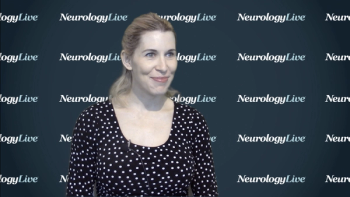
The podiatrist and CEO of Naboso Technology spoke about the potential of simple textured insoles to improve gait, posture, and balance in patients with MS experiencing ambulation issues.

Follow-up data extending out to 8 years suggest that both clinical and MRI outcomes are better with alemtuzumab (Lemtrada) than interferon beta-1a in patients with relapsing-remitting multiple sclerosis.
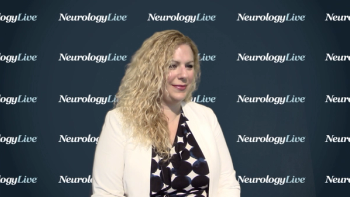
The Director of Behavioral Medicine at the Mellen Center for MS Treatment and Research at the Cleveland Clinic spoke about how she approaches fatigue in MS from a behavioral standpoint.

Given that depression is a common symptom in patients with MS and is associated with increased morbidity and mortality, the investigators examined the effects of lower-efficacy DMTs and higher-efficacy DMTs on depression.

In those with MS treated with subcutaneous interferon beta-1a, Magnetic Resonance Imaging in multiple sclerosis scores may be predictive of the time to new clinical disease activity and disease progression.

In order to better understand the clinical and economic impacts of nonadherence to disease-modifying therapy, the investigators conducted a cost-consequence analysis among patients taking once- or twice-daily DMTs.

The investigators sought to compare a 6-week, in-person intervention with CBT for insomnia and a brief education program in patients with MS who reported symptoms of insomnia.

The subgroups were defined by baseline characteristics that are known to be potential modifiers of risk to conversion to clinically-definite multiple sclerosis, including age, gender, first classification of demyelinating event, presence of T1 Gd+ lesions, and number of active T2 lesions.
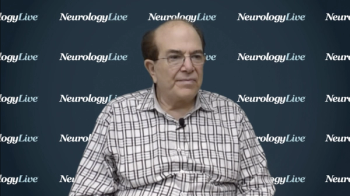
The director of the Jefferson Headache Center at Jefferson University Hospital discussed the need for physicians to revisit how they treat patients with chronic migraine who have developed medication overuse headache.

The Director of the Multiple Sclerosis and Hereditary Neuropathy Centers at Seton Hall-Hackensack Meridian School of Medicine shared insight into what clinicians should know about Charcot-Marie-Tooth disease.
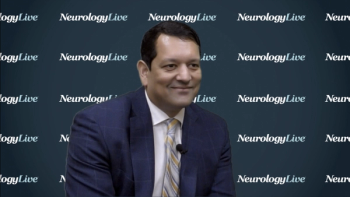
The chief medical officer and head of Research & Development at Ovid Therapeutics spoke about what prompted the development of this scale to measure improvement for patients with Fragile X syndrome, and possibly other conditions.

Despite a 40-fold increase in the use of LAAC in a 9-year period, those who had a history of stroke with major bleeds and higher comorbidity were less likely to have LAAC.

Similar rates of successful clinical and procedural EVT outcomes were reported in patients with and without prestroke disability; however, prospective studies are needed to confirm this finding.

The research fellow in the Department of Radiology at Mayo Clinic Jacksonville spoke about the reasoning for conducting this study and what the findings mean for physicians in clinical practice.
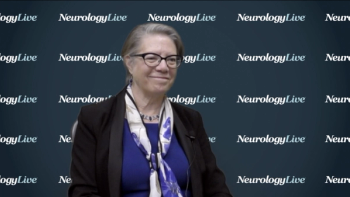
The director of the Pediatric Stroke Program at CHOP discussed the findings of a single-center study exploring the incidence of children presenting with acute arterial ischemic stroke who may have been eligible for mechanical thrombectomy.
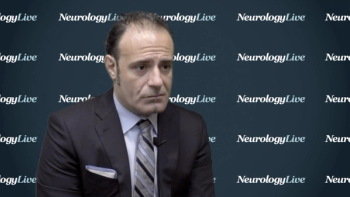
The associate professor of neurology at Mayo Clinic spoke about the findings of a population-based cohort study seeking to investigate the incidence of levodopa-induced dyskinesia in atypical parkinsonism.

The director of the Pediatric Stroke Program at CHOP spoke about the need to improve early recognition and assessments in pediatric stroke, and how ultimately, awareness of the condition is a huge step toward achieving this goal.

NfL levels were reduced during treatment with fingolimod, providing further evidence of the long-term benefit of the drug and demonstrating a greater impact of highly effective therapy in relapsing-remitting multiple sclerosis.
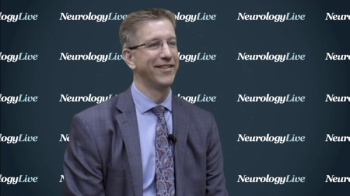
The staff neurologist at Cleveland Clinic shared his insight from the study, as well as what these data can do to further inform the use of this biomarker in progressive MS trials.

The lead investigator noted that “the study results are a promising step toward having a scientifically-validated tool for clinical use that can facilitate physician-patient conversations and ultimately help to get ahead of MS progression.”

The International Project Team Lead spoke about the results of study endpoints that assessed the potential for next-morning residual effects of lemborexant, which is in development for insomnia.

Evobrutinib is the first BTK inhibitor to demonstrate clinical proof of concept in multiple sclerosis, reducing Gd+ lesions in a 75-mg, once-daily dose.

Suvorexant improved the mean total sleep time by 28.2 minutes for the patients receiving the treatment versus placebo, equating to a mean increase of 73.4 minutes with the orexin receptor antagonist.

The chief medical officer of Neurocrine Biosciences spoke about how long-term data on valbenazine (Ingrezza) has helped shape the understanding of the effect tardive dyskinesia can have on patients, and how it can inform better utilization of the medication.
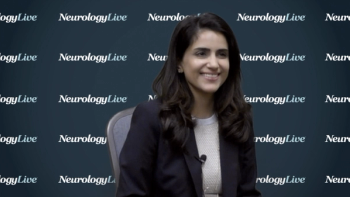
The assistant professor of neurology at Mount Sinai Health System spoke about the recent trend toward approaching migraine in a more holistic fashion, and the incorporation of nonpharmacologic options for patients with the chronic headache condition.